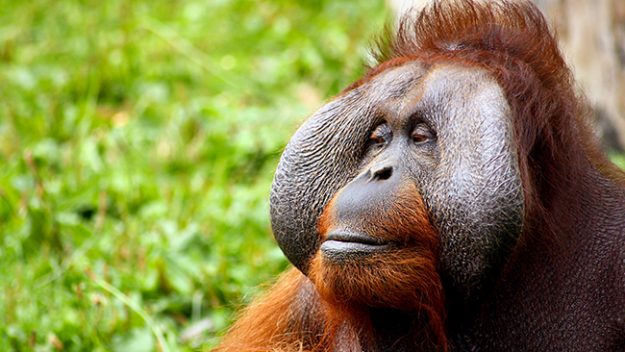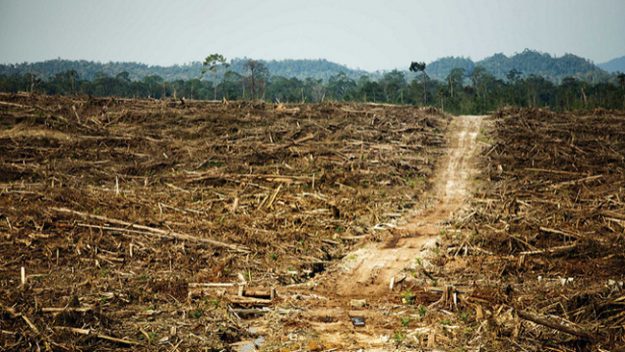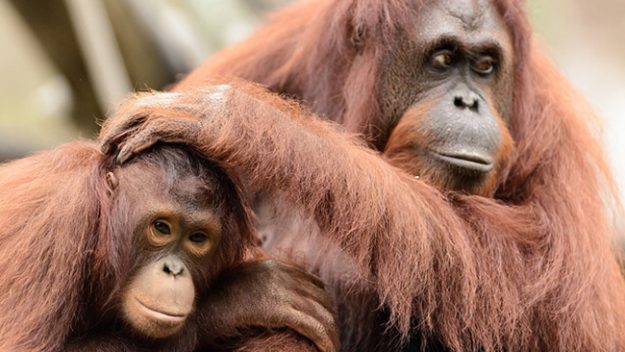Nearly 150,000 Bornean orangutans have been lost to deforestation and poaching in less than 20 years.

Bornean orangutan populations have decreased by nearly half as a result of unsustainable resource demand and conflict with humans.
A recent study working with researchers from Cardiff University has found that populations of the critically endangered Bornean orangutan (Pongo pygmaeus) fell by nearly 150,000 between 1999 and 2015. Researchers are shocked by the figures, which prove that many past predictions were wrong.
Dr. Benoit Goossens, a reader of biosciences at Cardiff University took part in the research. He says, “The findings are staggering and it was hard for me to believe them. The rate of decline is much faster than what we thought, and this is worrying. If we cannot stop this decline, many more populations are going to disappear in the next few decades.”

While agricultural deforestation and logging were issues highlighted in the research, the hunting of these great apes for food and illegal wildlife trade have also been identified as significant factors in their decline.
“The major reason explaining this decline is the killing that happens in non-protected and protected areas. Forest conversion for agriculture explains less than 50% of the decline,” says Dr. Goossens.
If the impact of resource demand and hunting on these animals is not reduced, a further 43,500 could be lost in the next 35 years due to habitat loss alone. When hunting and poaching of orangutans are considered, this figure could be much higher.

A ticking clock.
Dr. Goossens currently works as director of the Danau Girang Field Centre in Sabah, Malaysia. Measures have been taken here to ensure the forests vital to orangutan survival are protected. He insists there is hope for the future of orangutans but stresses that more needs to be done to prevent poaching.
“Here in Sabah, the efforts of the government to protect 30% of the forest need to be applauded: this will be a game saver for the largest populations. We also need to ensure that no orangutan is killed and ensure that if this happens, the poachers are brought to justice,” says Dr. Goossens
- New species of orangutan threatened.
- Bornean orangutan shot 130 times.
- Orangutan conservation in Sumatra.
As a result of this poaching, many of the remaining populations of Bornean orangutans now have less than 100 individuals. This is below the threshold needed to ensure these populations survive, termed a ‘viable population’. Successful breeding is unlikely to occur in these groups, meaning these smaller populations may soon be lost.
“The larger orangutan populations seem to be secure in Sabah, [but] there is still a real risk that smaller groups of animals that are unaccounted for today may disappear in the next few years. The clock is ticking.”

